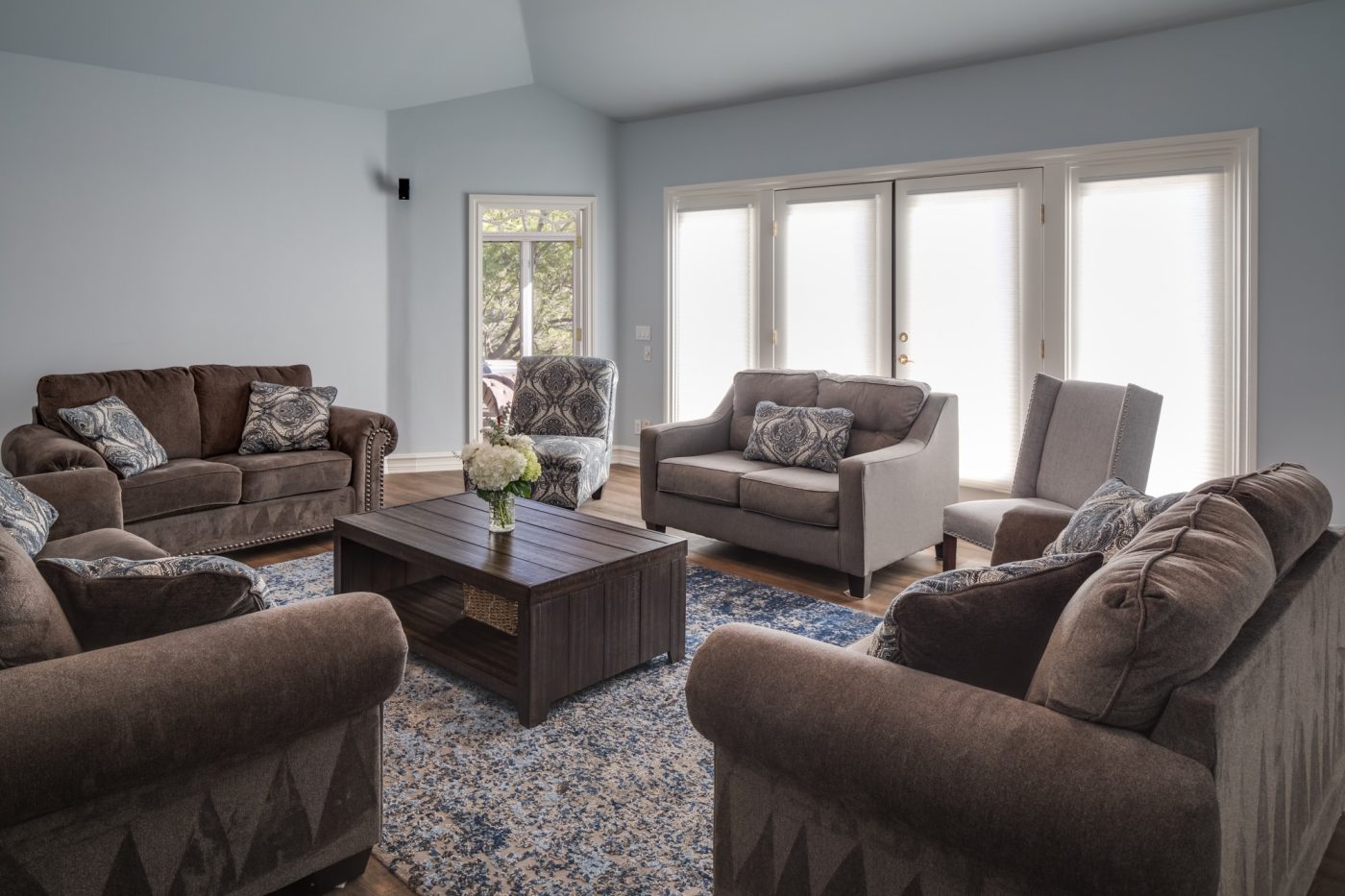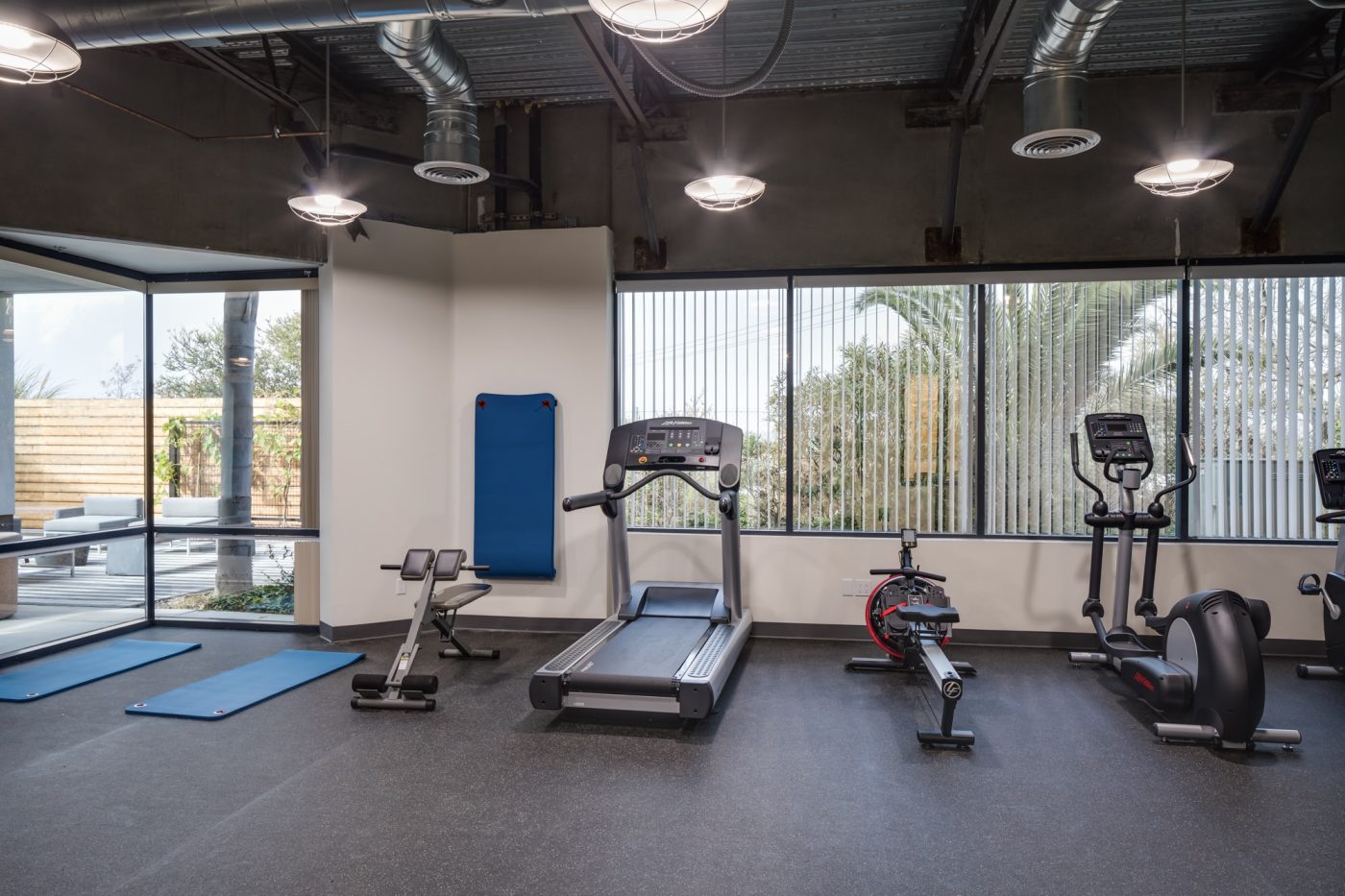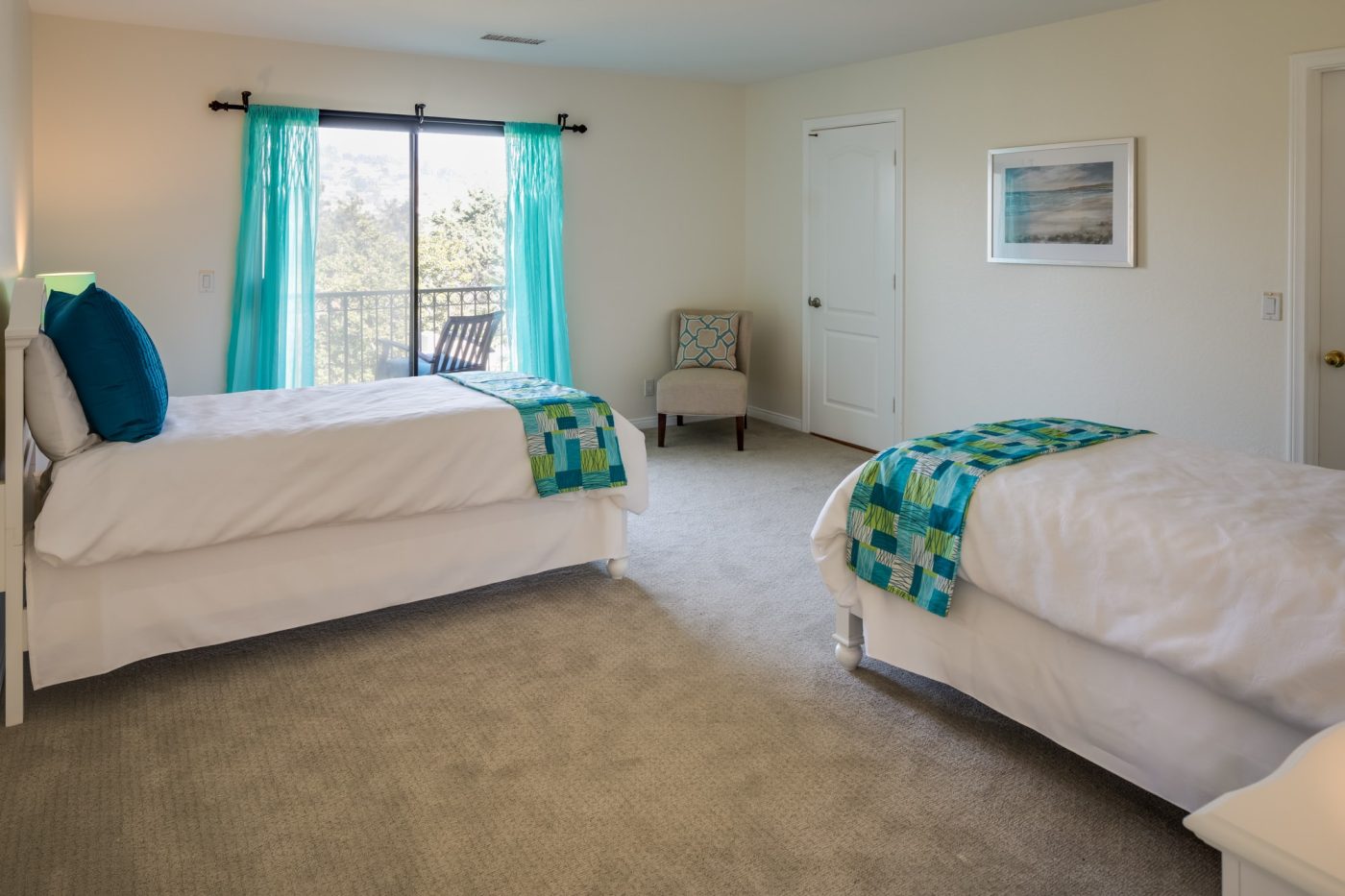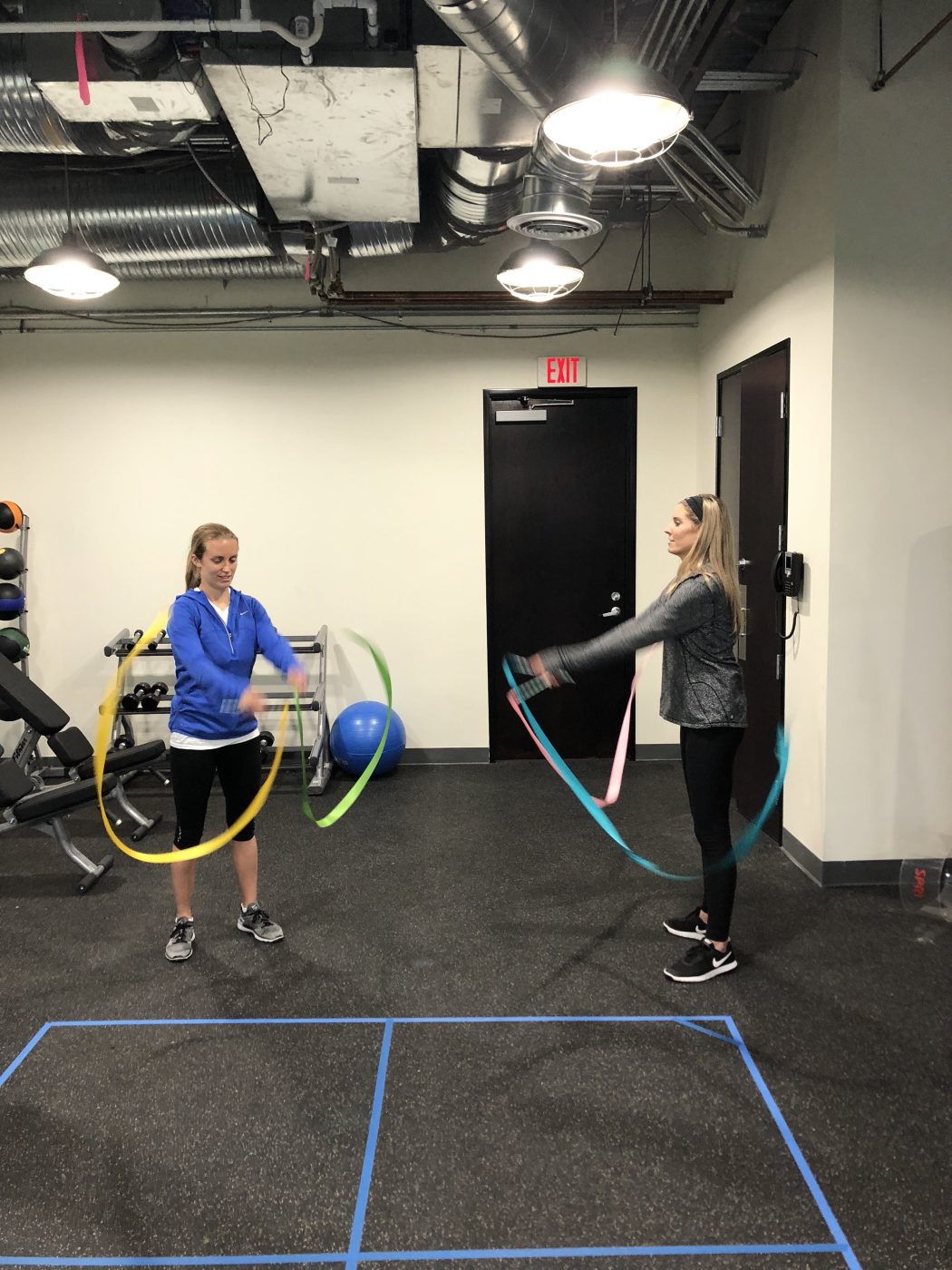Proudly serving Southern California, Montecatini Eating Disorder Treatment Center has helped transform the lives of females, ages 12 and older, struggling with compulsive overeating for over 30 years.
Compulsive Overeating Treatment
Learn more about compulsive overeating treatment at Montecatini Eating Disorder Treatment Center in Southern California
Compulsive overeating is a disorder wherein a person is unable to maintain her regular eating habits at healthy levels. This disorder is not merely a result of poor willpower; rather, people with this disorder are genuinely unable to prevent themselves from eating excessively.
Compulsive overeating may be confused with a number of other eating disorders, such as bulimia and binge-eating disorder. Unlike bulimia, people with compulsive overeating do not perform purging behaviors (such as vomiting or using laxatives) after they eat. Compulsive overeating is also different from binge-eating disorder because people with compulsive overeating do not always eat excessively when they sit down to eat. Rather, they may eat consistently throughout the day, resulting in their consuming an excessive amount of food by the end of the day. Although compulsive overeating can be a dangerous behavior, it possible to find effective, caring treatment.
At Montecatini, we know the extraordinary courage it takes to address the physical, emotional, mental, and spiritual aspects of living with compulsive overeating. We also know how vital it is to feel safe and supported. That is why, in a serene and intimate environment, each patient’s treatment plan is customized to address her unique challenges, her unique family dynamics and history, her unique dreams for the future, and more. Our approach is collaborative and highly personalized, born out of true empathy and compassion.
We believe that no matter how long one has suffered from compulsive overeating, healing and lasting freedom from such conditions are possible. Our mission is to support you every step of the way.
Helping a Loved One
Helping a loved one get treatment for compulsive overeating
Feeling as though one is unable to help a loved one break free from patterns of compulsive overeating can be a frustrating and exhausting experience. Although you may feel as though you have done everything you can to help, consider the following suggestions, even if you may have tried them before.
First, it is important to understand compulsive overeating. Reading about the disorder from reputable books and websites and consulting with treatment experts are good places to start building your knowledge base. By understanding what your loved one is going through, you can better equip yourself to be a strong and empathetic source of support to her.
Next, explore options for treatment. There are many different types of rehab centers with various approaches for care, so narrow down your list by focusing on rehab centers that have extensive experience with eating disorders in general. Programs that are focused on treating compulsive overeating are optimal choices. Once you have completed your research, make a short list of centers that may be a good fit for your loved one.
Now comes the difficult part: It is time to talk with your loved one about her compulsive overeating. This conversation may be difficult, and it may be hard for your loved one to realize she has a problem. Your role in these conversations is to simply share your observations and concerns, and listen to her responses. Try your best to be open, patient, and nonjudgmental, and do not try to win arguments or force your loved one into treatment. She must make the decision to seek help on her own; you are there to share what you have observed and encourage her in her journey.
Once your love one decides to enter treatment, make sure to help her with the logistics of transitioning into an eating disorder treatment program. For example, you might consider making appointments with treatment center staff, and, as a show of support, offer to accompany her to those appointments.
Do not forget to take care of yourself. You can only help your loved one if you have the mental and emotional reserve to do so. Be sure to spend time rejuvenating yourself. Take time to enjoy your hobbies, get regular exercise, sleep enough, and make healthy meals.
Why Consider Treatment
Why consider treatment for compulsive overeating
If left untreated, compulsive overeating can be devastating in all areas of one’s life. The disorder can take an emotional toll, causing sufferers to feel frustration, depression, anxiety, anger, and a host of other painful emotions. In addition, compulsive overeating can interfere with a person’s ability to perform at her best at work, possibly resulting in job loss, unemployment, and financial strain. The disorder can also create tension in relationships, leaving a person isolated and without social support, and can make her more vulnerable to other mental health disorders such as depressive disorders and anxiety disorders. Naturally, consuming an excess of sugars, fats, and calories can have severe health implications, including obesity and obesity-related concerns such as joint problems, diabetes, and cardiovascular issues. These consequences of untreated compulsive eating can even be fatal. Fortunately, treatment is available that can help a person overcome this disorder and restore a healthy relationship with food.
Why consider Montecatini
Eating disorders are progressive and debilitating illnesses that, when left untreated, have the highest mortality rate of any mental illness. Depending on which eating disorder a person struggles with, she may suffer from malnutrition, obesity, organ damage, diabetes, and developmental problems, as well as other mental health disorders. Because of their pernicious and systemic nature, it is not enough to merely treat the physiological symptoms of an eating disorder. Instead, a person must also receive care for the co-occurring psychological issues that may cause her to return to her unhealthy eating behaviors. If treatment is to be truly successful in the long-term, it is important that each person receives a full spectrum of physiological and psychological treatment. At Montecatini:
- Treatment is provided in a warm, family-like atmosphere.
- Programming is supplied by staff who demonstrate true empathy.
- Customized, multi-dimensional treatment plans are created for each patient.
- Skill-building opportunities are provided so that patients can learn to integrate healthy behaviors into daily living.
- Personalized, consistent care is afforded to each patient.
- Comprehensive family support and therapy are integral parts of treatment at Montecatini.
- Simultaneous treatment for co-occurring disorders is available.
- Renowned medical and psychiatric management round out the therapeutic services we offer.
- Nutrition therapy is factored into each patient’s treatment in order to help her reestablish a healthy relationship with food.
- A full continuum of care is offered in order to ensure each patient’s long-term recovery.
At Montecatini, we believe that no matter how long you have suffered from an eating disorder, recovery is possible and hope is manifested daily as we work together in support of your long-term healing and inner-peace.
Types of Treatment
Types of compulsive overeating treatment offered at Montecatini Eating Disorder Treatment Center
Since treating our very first patient in 1991, Montecatini has helped inspire and transform the lives of hundreds of women. We are nationally recognized as a leading provider of eating disorder treatment and we are dedicated to helping our patients resume their lives as healthy, joyful individuals who are ready to live to their fullest potential. Women between the ages of 16 and 55 can heal in our residential, partial hospitalization, and intensive outpatient programs. These programs are designed to help our patients overcome anorexia nervosa, bulimia nervosa, or binge-eating disorder, as well as co-occurring mental health including compulsive overeating.
Montecatini is located just three miles from the Pacific Coastline in picturesque Carlsbad, California. The center itself exudes the comfort and safety akin to being at home, and our staff puts forth every effort to ensure that the atmosphere we create is both peaceful and conducive to recovery. Each patient is treated with the utmost respect and dignity, and her care will be personalized to her unique history, challenges, life experiences, and needs.
Our staff of passionate and devoted professionals, many of whom have overcome their own struggles with eating disorders, work in close collaboration with each patient who comes to us for treatment. By creating personalized plans for each person who chooses to heal with us, we are able to provide the highest quality of care while honoring the individuality of each patient. Depending upon the outcome of an initial assessment, patients may have the following interventions incorporated into their customized treatment plans as they work towards overcoming compulsive overeating:
Medical care: For patients who are medically stable, yet still require additional care for their physical health as they navigate the recovery process, Montecatini is pleased to offer renowned medical care. As a distinguished provider of eating disorder treatment, we recognize that the physical health of our patients can be compromised by the presence of an eating disorder. We also partner with specialists in San Diego to ensure our patients’ medical needs are appropriately met.
Medication management: When a patient comes to us battling another mental health condition in addition to compulsive overeating, they may benefit from the inclusion of certain medication(s). Our psychiatrist is available to meet with patients once per week to assess medication needs, prescribe medication, and adjust dosages as needed. Physician’s assistants and nurses are also available to monitor the effectiveness of any medication that is prescribed and to ensure that patients are adhering to their medication regimens.
Individual therapy: Individual therapy occurs three times per week. Each patient meets with her assigned primary therapist in a one-on-one setting, which provides an excellent forum to assess progress and to discuss setbacks and successes that have occurred during treatment.
Family therapy: Each patient’s family members are invited to participate in family therapy sessions while their loved one is receiving treatment. This treatment method, which is offered once per week unless otherwise indicated, is designed to heal emotional wounds and promote unity among our patients and their primary support networks.
Group therapy: Offered up to five times per day, group therapy is a key component of treatment at Montecatini. Led by therapists, registered dietitians, nurses, patient assistants, yoga instructors, and art therapists, group therapy covers a wide range of topics that can further the recovery process and provide an optimal setting for patients to gain support and encouragement from staff members and other patients. Groups that may be incorporated into a patient’s treatment plan as she works towards recovering from compulsive overeating may include the following:
- Body image
- Expressive arts therapy
- Dialectical behavior therapy (DBT)
- Interpersonal process group
- Cognitive-behavioral therapy (CBT)
- Relapse prevention
- Yoga
- Nutrition counseling and education group
- NIA
- Spirituality/12-Step group
- Family weekend incentives
- Food and feelings group
- Mindfulness/meditation
- Exposure therapy
- Action planning
- Outside 12-Step group
- Menu planning and meal preparation
Experiential therapy: In order to help our patients nurture the mind-body connection and apply learned skills in real-world settings, at Montecatini, we are proud to offer a number of experiential therapy opportunities. Experiential therapies complement the other therapeutic interventions we provide and typically take place once per week. Depending on the patient’s needs, the following may be part of her personalized treatment plan as she works towards overcoming her compulsive overeating:
- Restaurant outings
- Grocery shopping
- Clothes shopping
- Group dinners
- Challenge food outings
- Beach trips
Our experienced staff members, many of whom have specialized training in therapeutic techniques and treating a myriad of conditions, including compulsive overeating, assess patients’ needs on an ongoing basis and can recommend additional interventions if they are determined to be conducive to a patient’s recovery.
Because we realize that recovery from compulsive overeating does not end with the completion of residential rehab, Montecatini purposefully begins preparing our patients for discharge on the day they are admitted to our program. Many of our patients transition to our partial hospitalization program (PHP) after completing our residential rehab, and then step down to our intensive outpatient program (IOP) after completing PHP. Each patient’s primary therapist determines and coordinates the most appropriate follow-up and aftercare services, and alumni of our program are welcome to attend our weekly support groups and Alumni Events and Celebrations for as long as they wish. Our goal is to help our patients return to lives that are not only functional, but joyful and deeply supported as well.

























